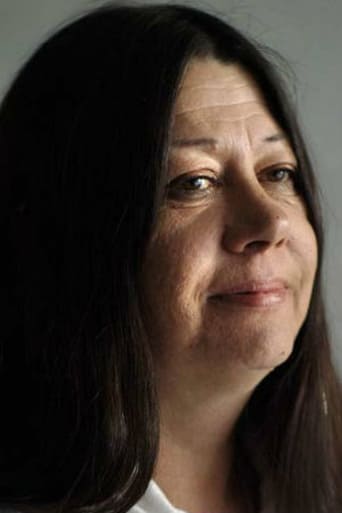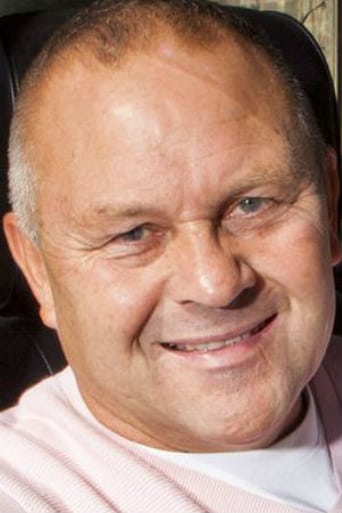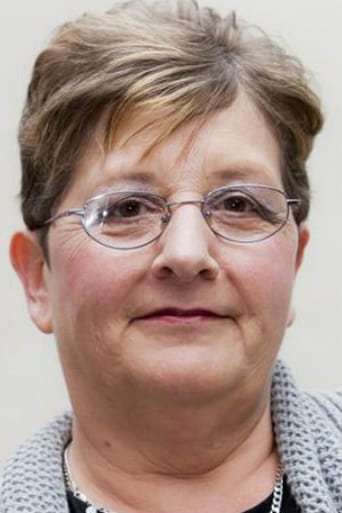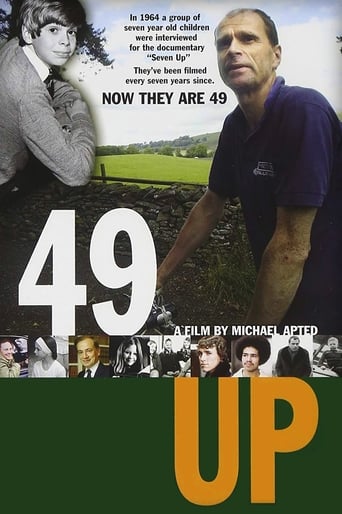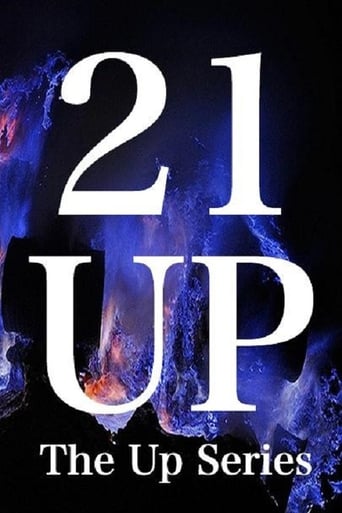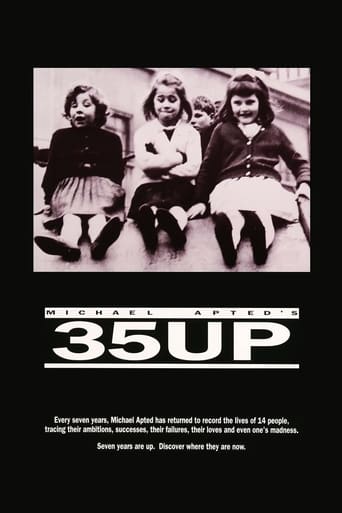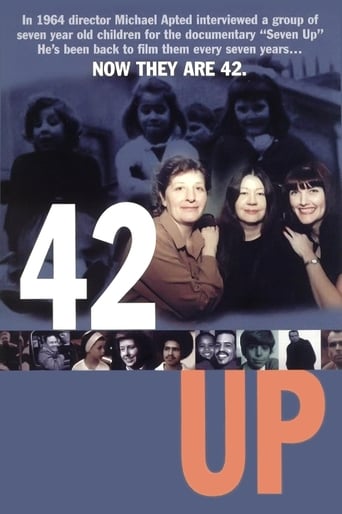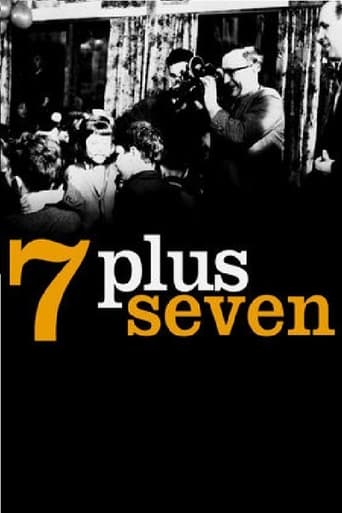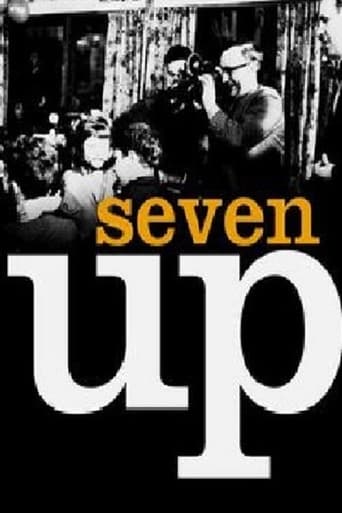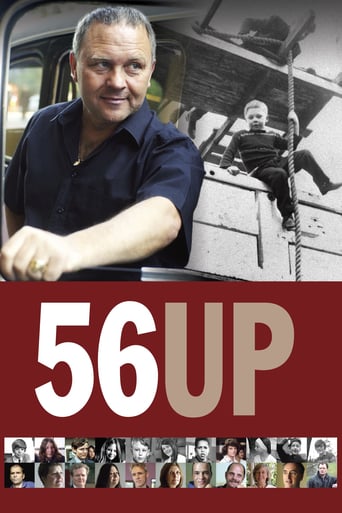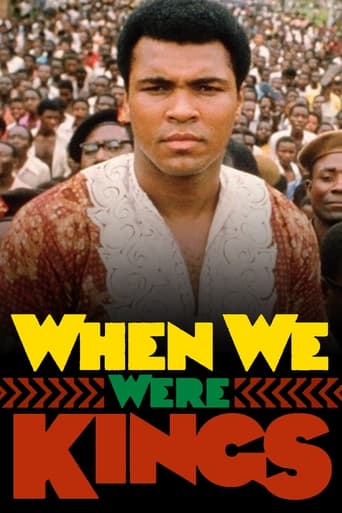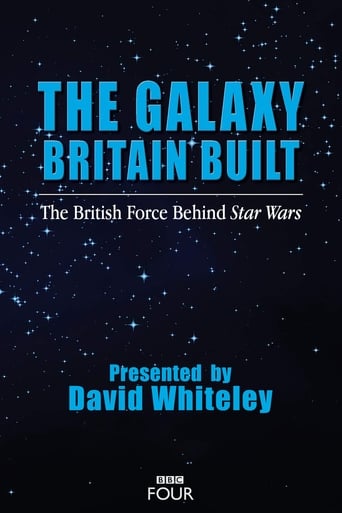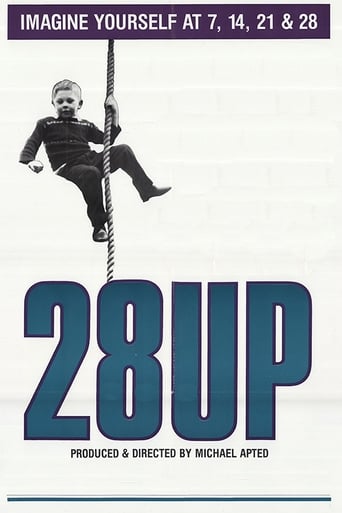
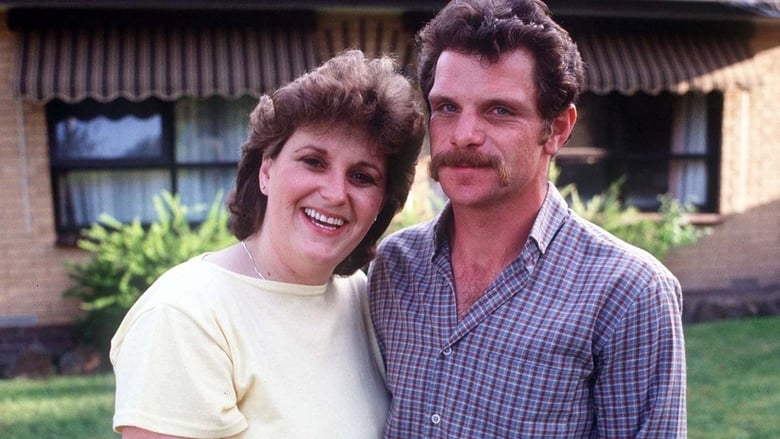
28 Up (1984)
Just two years away from turning 30, participants in Michael Apted's documentary series are facing serious questions of identity and purpose, wondering whether they've found their place in the world.
Watch Trailer
Cast


Similar titles
Reviews
Best movie ever!
Although it has its amusing moments, in eneral the plot does not convince.
There's no way I can possibly love it entirely but I just think its ridiculously bad, but enjoyable at the same time.
what a terribly boring film. I'm sorry but this is absolutely not deserving of best picture and will be forgotten quickly. Entertaining and engaging cinema? No. Nothing performances with flat faces and mistaking silence for subtlety.
I can't stop being amazed at how riveting these "Up" documentaries are. Once again, without any music, dramatization tricks or cinematic effects, only real people talking about life and love, the film can be as captivating as any drama or adventure. It IS an adventure to some degree, with life as a backdrop and adversity as a natural antagonist.And there was an interesting statement made by Neil, perhaps the most troubled and fascinating subject, he said that he envisioned God as an old Testament figure, sometimes "benevolent", sometimes "needlessly unkind", always "unpredictable". I said about Neil that he always seemed to provide overviews proved by the others' experiences. In this case, it is true because basically, you can see how destiny was benevolent to most of the "Up" persons, even some I didn't expect.Many of them had found love and marriage, Tony; the ex-jockey has been driving cabs for all these years and has two children, his happy-go-lucky nature and the many encounters with people from different classes allowed him to broaden his mind and soften his heart. Nicholas is a physician in the USA, Paul started a building trade and raised a family in Australia, after going for a road trip across the Bush with his wife. Not all the marriages look happy though, Peter seems to have a rather 'disillusioned' vision and you can't really feel sparkles of love exuding from his wife's words. There's still a lack of contentment.But the real 'miracle' came from Suzie. It's weird but in my previous review, I thought Jackie was going to have a large family and Suzie to be a disenchanted, embittered spinster. But Jackie decided not to have any children (despite an early marriage) and Suzie got married two years after the "21 Up" episode, has two children and is quite happy. Simon is happy too with twice more children, whom he provides a shelter of love and discipline, and perhaps the most valuable thing he always lacked: a parents' presence. And he also kept his job in the meat locker, not the most glamorous occupation, but it makes end meet, he knows everybody and everybody knows him. Why change now?Simon is happy the way he is, and he still doesn't think much about money. According to him, there's nothing that money will buy. Happiness depends on the goals you've set. It's even harder to disagree with him since 28 seems to be the age where everyone has found the meaning to their lives or roots for stability. Sue said that a marriage shouldn't be too early because once you get married, you stop being yourself and start to reason in terms of partnership. But some found their real balance in marriage, and some, like Neil, have hard times even co-existing with themselves. Neil is totally disenchanted and have definitely abandoned any attempt at stability or suburban comfort. His case proves that happiness isn't a matter of grammar or comprehensive school, of being rich or poor, it really depends on your personal goals and the way you grasp from the start who you really are. Sometimes, you've got to know who you are to know what you need, and maybe the real tragedy is not to able to know who you are. This is perhaps the existential dilemma revealed by the film, and that makes it, so far, the most pivotal.Indeed, how can we know exactly who we are. Looking at these kids at the age of 7, or 14, we become like sorcerer's apprentices, trying to establish patterns "this one will struggle", "this one will be happy", But life is unpredictable or for most people. Two of the posh kids didn't want to take part of the interviews, John and Charles. No commentator was surprised a bit by John, Charles was far more interesting fellow, but from the start, John was so overly confident, he knew his future school, job and everything went exactly as planned, he declined to be interviewed at 28, stating that he was fully satisfied and doesn't have much more to say. The boy always seemed so precocious, ahead of time and maybe that's how he ended up succeeding in every project. But for some reason, I wish I would still see him at 35 and check if anything happened to vacillate the edifice of his self-confidence. I doubt he'd live all his life in autopilot mode. But that's how it works, some things we see coming, some surprise us in a pleasant, others in an unpleasant way. And I found myself trying to figure out what will happen to these persons at 35.I keep in mind that they are from my parents' generation, and when I was born, most adults I knew were married with children, no one really questioned his existence, the way we millennials (or some Gen X-ers) did. Watching this, I realized that at the age of 28, although I was longing for professional stability, I also had many dreams about becoming a filmmaker and screenwriter and collected dates before I would find the 'right' one. Seven years after, I realize that I had all it took to be happy butwas too blinded to realize it.And the "Up" series gives you an idea of the belated blinding effects, from little details of your past. You can spot some early hints; the way some kids are overly protected, the lack of love that can work as both a driver or an obstacle. I'm not in a situation I dreamed to be when I was 7, 14 or 21 but I'm still the same guy and whatever actions lead me to that situation were driven by interpretations of life gathered from my past experiences. So how did I end up that way?In fact, that could be the central question of the documentary, like an existential reading of "what happened?"
I originally saw 49Up, which led me to want to see 7Up and 7 plus 7. And I liked 21UP enough to want to see 28UP. And this one, for whatever reason, was a bore. Whether that's a function of what is happening to the people at 28, or a function of Apted's direction and editorial choices, I don't know. All I know is that I was pretty bored within the first 20 minutes of the picture, and at over 2 hours and 15 minutes, I knew I still had a long way to go.Of course Neil is the most compelling of the players, and I got a kick out of Suzi's transformation from 21 to 28! But other than that, I thought it was all pretty boring.I'm sure I'll see 35UP and 42UP to catch up to the series, but after 28UP, I'm much less motivated to do so.
Michael Apted must be congratulated for having (or perhaps stumbling upon) the vision for this study. Begin with 14 seven year olds in England, film them in a few interesting situations, and follow those same kids as they grow up. Every seven years. Because all of our lives transpire at roughly the same rates, we cannot actually observe children growing up. But this filmed approach is the next best thing.In this film we get to see (most of) the same children at 7, 14, 21 and 28. Just as we saw a great difference from 14 to 21, again we see a great difference from 21 to 28. Having been in the working world for 5 or 6 years, most married and raising families, they no longer look and act like the searchers we saw in earlier films. Except for Neil, who at 7 seemed to be the brightest and most expressive, to a 28-year-old that never knows if he will be homeless the next month. As dramatic, in the opposite direction, was Suzy who went from a disenchanted dropout to a happy wife and mother. Still, in each subject we can identify characteristics that have stayed with them as they grew up.We still see how the "process" has influenced the "product." To a good degree, who they are at 28 is a product of having been in the "UP" series every 7 years, and the internal pressure to be worthy for the world to see them.This and all the others through '42-UP' in 1998 are on the 5-disk DVD set just out. ("49 UP" has been made but is not yet available on DVD.) However, simply seeing the most recent film (42-UP or 49-UP) is pretty good, because each film contains snippets of each of the former ones, allowing us to see how each child developed in 7-year increments.Just a marvelous study of growing up.
"Give me a child until he is seven, and I will give you the man," goes a Jesuit proverb, which the "Up" documentaries quote. Every seven years, Michael Apted interviews the same Britons to see how they have changed. "28 Up" is the fourth installment of the series--the interviewees are now each 28 years old. The children are now the men, or women. It's not necessary to have seen, or recall, the previous installments of the television series to watch this episode, because the filmmakers intercalate clips from previous episodes with the new scenes. Via film editors Kim Horton and Oral Norrie Ottey, "28 Up" stands well by itself. We're timely shown how the interviewees have changed.The proverb seems oft to hold true, but there are some surprises. Suzi, for example, was "very cynical" about marriage as a 21-year-old chain-smoker, but at 28 years old is a cheerful wife. Tony, however, said he wanted to be a cabby if he didn't succeed as a jockey--now he is a cabby, and he seems happy.Besides examining their individual lives, the series also examines the differences among socioeconomic classes in Britain. John, although he didn't participate in the show at 28 years old, made two interesting comments on class issues in previous episodes (viewed again here). He said it "doesn't mean because you sweep the streets you're any less valuable than someone who's running a huge corporation. Not everyone can be at the top. As long as people are happy at what they're doing." John is from the upper classes and attended a private school. He went onto say, "And this is what worries me about these new sort of invidious sort of class attitudes that certain subversive elements are introducing...."Class issues don't seem to bother most of the cast; most of them seem content with their role in society, as John advocated as the "greatest good that could be". Yet, John is also a bit of a snob. Contrastingly, Bruce is a socialist from the upper classes, and he is now teaching math in a public school.Women's role in family and society is another issue examined in the film. Jackie, Nick's wife, discussed how she and her husband might balance work with children. Jackie (a different one), Lynn and Sue are the program's three working-class women. They're all married now, and they characterized marriage as a partnership of equals. Jackie has decided not to have children, at least not yet.Inevitably, some of the interviewees are more interesting than others are. For example, Symon (who had the misfortune of being the last interviewed) was a bit boring. At 21 years old, he was working in a freezer room; he said, "I couldn't stay there for that long--my mind would go dead". He's still working there at 28 years old. It wasn't apparent to me that his mind had died, but perhaps the job has caused him to appear dull in this segment.Finally, Neil, lanky, serious-minded and depressed, is to me (and many other viewers) the most interesting person of the gang. Neil is now a tramp traveling around Britain. The most memorable sequence of the film is of Neil nodding nervously as he sits by a waterfront, discussing his life and past, hesitating often as he thinks about how to better articulate his thoughts, or to reflect on his thoughts before he is posed another question.


